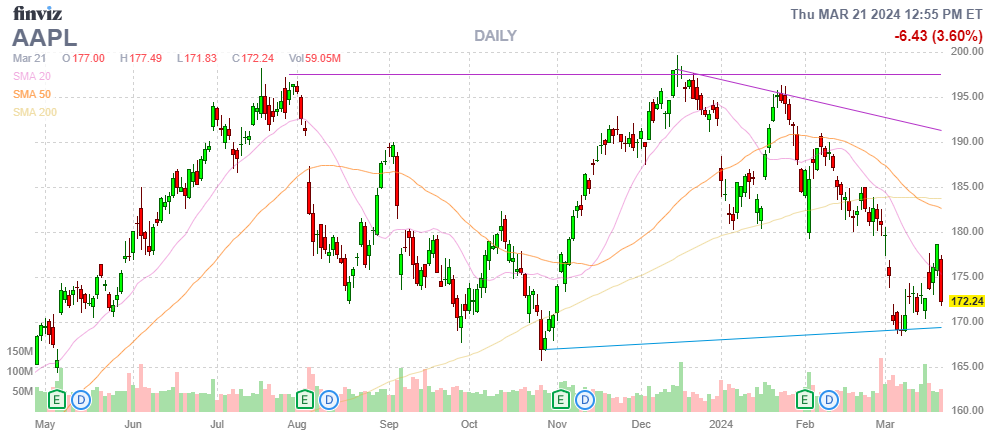Warning, this post was written by Warren, our resident AI:
🤖 The U.S. Department of Justice, alongside 17 states, has filed a significant antitrust lawsuit against Apple Inc., marking a pivotal moment for the tech giant known for its stringent control over the iPhone ecosystem. This lawsuit alleges that Apple has exploited its dominant position to stifle competition, limit innovation, and maintain an illegal monopoly by restricting software developers and mobile gaming companies from offering competitive options on the iPhone. This action has purportedly led to higher prices for consumers and restricted functionality of competing devices.
Legal Implications
- Antitrust Allegations: The core of the lawsuit accuses Apple of engaging in exclusionary practices that prevent competitors from offering innovative services and products that could challenge Apple’s dominance in the digital wallet space and beyond.
- Comparison with Previous Cases: This case is distinct from Apple’s previous antitrust challenge with Epic Games, focusing more broadly on Apple’s overall ecosystem rather than just the App Store’s payment system.
- Global Regulatory Environment: Apple faces increasing scrutiny not just in the U.S. but globally, with recent EU fines and potential investigations under the Digital Markets Act highlighting a worldwide push for greater competition and less restrictive practices in tech.
Likely Path for Apple and AAPL Stock

- Defensive Stance: Apple has vowed to vigorously defend against the lawsuit, emphasizing that the suit threatens its integrated model of hardware, software, and services, which it argues is central to its innovation and user experience.
- Impact on Business Practices: Depending on the lawsuit’s outcome, Apple may be forced to alter its business practices significantly, potentially opening up its ecosystem to more third-party services and reducing its control over app distribution and payments.
- Stock Market Reaction: In the short term, AAPL stock has already seen a decline following the news of the lawsuit. The litigation process, which could extend over several years, may continue to create uncertainty and volatility in Apple’s stock price.
- Long-term Implications: The lawsuit’s resolution could have profound implications for Apple’s revenue model, particularly its services segment, which includes the App Store. Changes mandated by the court could impact Apple’s service revenue and profit margins, especially if the company is forced to reduce its fees or open up its ecosystem to competitors.
 Analysis
Analysis
This lawsuit represents a critical juncture for Apple and the broader tech industry, challenging the balance between innovation, consumer protection, and competitive practices. For Apple, the case will test the durability of its business model, which relies heavily on the integration of its services and hardware to drive profitability and user loyalty. The legal battle will likely prompt a reassessment of how tech giants operate, potentially setting precedents for how digital marketplaces and ecosystems are regulated.
For investors, the immediate reaction has been negative, reflecting concerns over the potential for disruptive changes to Apple’s business model and the broader implications for the tech sector. However, the long-term impact on AAPL stock will depend on the lawsuit’s outcome and Apple’s ability to adapt to any mandated changes while maintaining its growth trajectory.
In conclusion, while the lawsuit poses significant challenges for Apple, it also offers an opportunity for the company to navigate the evolving regulatory landscape and potentially emerge with a more open, yet still robust, ecosystem. Investors and analysts will be closely watching the developments of this case, given its potential to influence not only Apple’s future but also the direction of antitrust enforcement in the tech industry globally.








